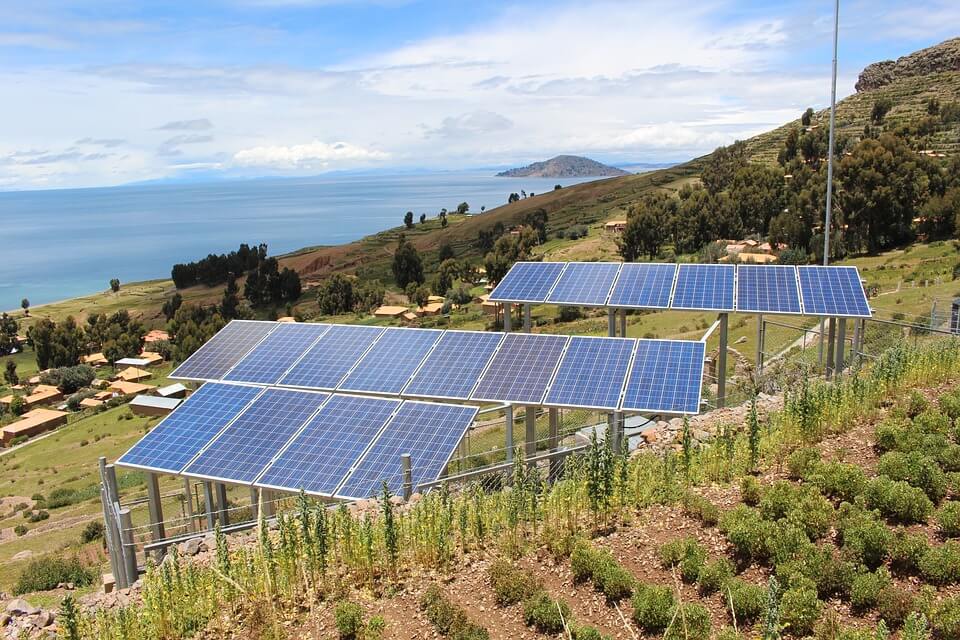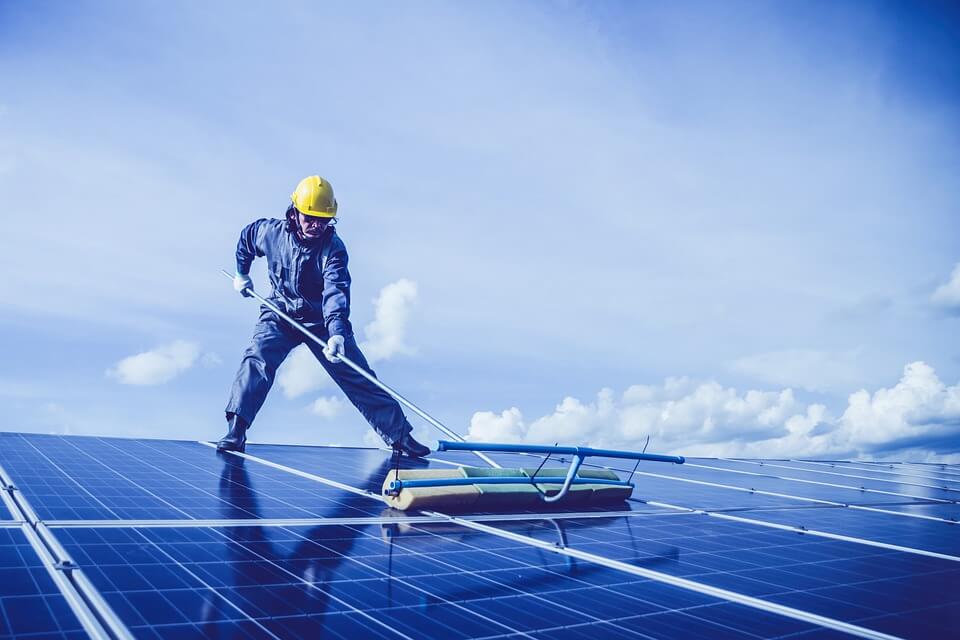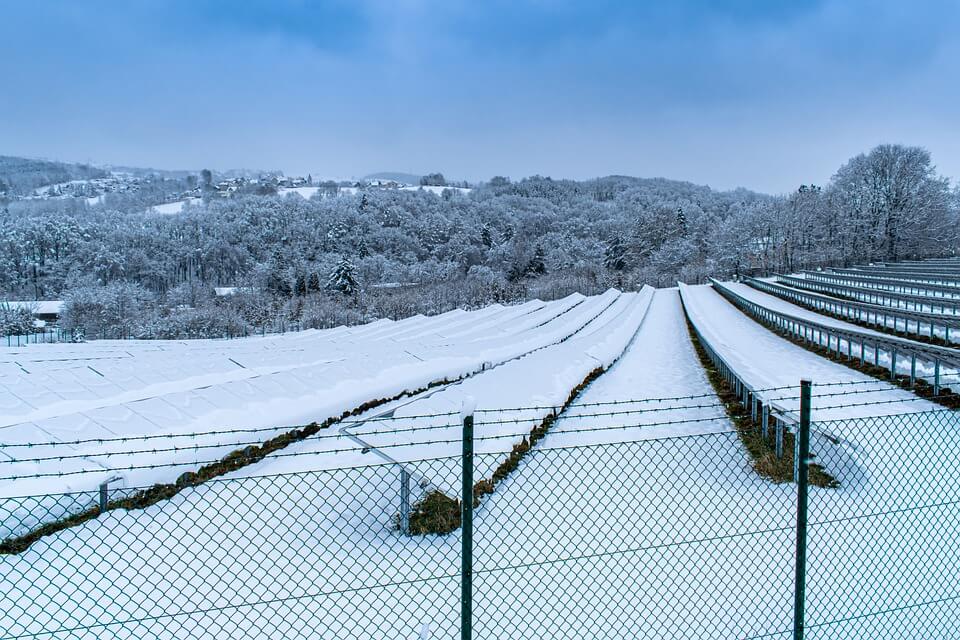It’s a bright sunny day, today the solar panel must be working at its best. Do you have the same thought? Are you the one who thinks a bright sunny day is essential for solar panels to work? If yes, then this article is specially dedicated to you to clear all your doubts.
The word solar connects with the sun, so, it’s natural people tend to think it works only when the sun is active. However, this isn’t the fact.
If you are new to the solar system, it’s natural you will have several questions related to it. Some may even have worries about its consequences, isn’t it? But there is no need to worry, we are here to solve your doubts. With our tips and tricks, we will ensure your solar panel works at its best efficiency in all weather conditions.
For instance, if you stay in a region where lightning and hail are common, then go for high-quality panels with greater efficiency. In the same vein, you can also consider the best grounding equipment for solar panels.
The best part is solar panels have developed a lot with their modern techniques. For instance, photovoltaic solar panels are best when it comes to durability. These panels work excellently even in extreme weather conditions. Once you find the right solar for your weather conditions, your investment will prove to be profitable.

To solve your queries related to the efficiency of solar panels in various weather conditions, we have prepared a comprehensive list to clear all your doubts. Keep reading so that you do not miss out on any important point. So, let’s begin:
Table of Contents:
- Science between temperature and solar panels
- Do solar panels work in different weather conditions?
- Science between electrons and cooler temperatures
- Best weather condition for solar panels to work excellently
- Do solar panels work on cloudy days?
- Do solar panels work on rainy days?
- Do solar panels get affected by hail?
- Do solar panels get affected during lightning?
- Do solar panels get affected by wind?
- Will Ice damming create a problem for solar panels?
- Solar panels connection with high temperature
- Will solar panels get affected by dust storms?
- Will solar panels get affected after the Hurricane?
- Bottom line
The science between temperature and solar panels
If you have questions such as do solar panels work on rainy days? Or any questions related to weather conditions, you will get a convincing answer below:
The solar system is built with modern technology. Your solar system will work excellently even in below-freezing temperatures. Solar panels have the capacity to turn on electricity even in extreme conditions. Now, you must be thinking, how can the system work when there is no sunlight? Isn’t the sunlight necessary for the system to work?
No doubt, sunlight is necessary but solar panels absorb the sun’s light for energy production, not the sun’s heat. Moreover, solar panels work best in cold climates.
Solar systems have more efficiency to generate electricity when the temperature gets extremely cold. Surprised? Obviously, it’s surprising news, as we always related solar to sunlight. As long as panels are receiving sunlight they will work efficiently. However, if there is less output of energy then the reason may be due to heavy snowfall or the panel did not receive much sunlight due to shorter sunlight hours.
How do solar panels work in different weather conditions?
The common question we all have in our mind is, how do solar panels work? Well, the matter is all about the sunlight.
When the sunlight photon reaches the solar panel the electrons present in silicon and photovoltaic cells get active. The electric current is created in this process which is sent to the electric grid of your home and the necessary electricity is produced.
With the help of a solar battery, you can store the electricity and use it whenever necessary. These batteries are rechargeable and can be used when the electricity gets down.
The Science between electrons and cooler temperatures
We all have studied something related to electrons in our school and university days, right? The solar system is where the logic of electrons is applicable.
Electrons revolve around atoms. Electrons get set well in cool temperatures. When the electrons get activated by sunlight there is a difference in the voltage of solar panels. This results in creating more solar energy. Thus, solar cells are capable of producing better electricity when the temperature is cold.
Solar energy is less likely in peak winter temperature: As the temperature rises high (above the peak temperature) the performance of solar panels decreases. However, the energy is balanced with daylight hours in the summer and spring months.
What is the best weather condition for solar panels to work excellently?
As discussed earlier, solar panels can work best in colder temperatures. This weather condition allows panels to generate more voltage.
Many people even have a question: do solar panels work on rainy days? To get an answer to this question keep reading as we will discuss it further.
Above 77 degrees (which is considered as standard) the panel gets less efficient by 1 percent. However, the panel gets 1 percent efficient with each degree that is below the range of 77 degrees.
Solar panels are very effective during the summer months. However, solar panels are capable of generating better electricity in colder temperatures. During the summer months, the sun rays are very powerful. So, the solar panel receives good sunlight all through the day. Hence, more energy is produced. However, they are not as effective as in cold weather.
So, the answer to how do solar panels work in different conditions is still pending, you will get an answer ahead so stay tuned.
Do solar panels work on cloudy days?
So, you are planning to install solar panels soon. The next day you wake up and see cloudy weather. Now, all different thoughts buzzing in your head. The first question that clicks on your mind is, will my solar panel work on cloudy days?
Well, cloudy days are a part of our weather conditions. But the myth related to cloudy weather conditions to the working of solar panels must be eliminated from your mind.
There are many myths related to solar energy. However, we won’t let you fall for the myth. We are here to solve all your queries with a logical answer.
You need to understand the working of solar energy to get an answer if it works well in cloudy weather.
Whether it’s snowing, raining, lightning or hail, you will always see clouds covering the sky irrespective of the current weather. This will prevent sunlight from reaching your solar panels. This also depends on how dark the clouds are.
If you experience cloudy days for a long time the solar panel may drop down its efficiency. This is also applicable for mist and foggy days. However, in San Francisco, even the foggiest cities receive a good amount of sunlight and the solar panels work with full efficiency.
It is a myth that solar panels are not efficient on cloudy days. This is because even though you don’t see sunlight still the sun rays are passing through the cloud and reaching your solar panels.
Solar panels are efficient enough to absorb diffuse and direct light. This light is in the form of reflection from the clouds. Just remember, even a small amount of sunlight is enough for your solar panels to work efficiently.
Do solar panels work on rainy days?
One of the common questions is do solar panels work on rainy days? When you have a rainy day it’s common to have cloudy weather. As discussed above cloudy weather can slow down the efficiency of solar panels.
Surprisingly, rainy days are good for your solar panels. Rainwater can wash away debris and dirt from the solar system. The dirt, debris and bird droppings cover your solar system and this will limit the sunlight to reach your panel. Luckily, rainwater cleans it all and makes a way for sunlight to hit your solar panels.
People have a common myth that rainwater can damage their solar panels. However, this is not the truth. Solar panels are made of waterproof materials, so there is no chance that rainwater can damage your solar panels. With the latest technologies used to design solar panels, you can be sure that solar panels will ensure longevity and durability.

Do solar panels get affected by hail?
Solar panels consist of tempered glass. Experts state that solar panels can withstand 1 hail travelling at the speed of 55mi per hour. Solar panels are designed to withstand hail storms. With all the protection measures kept in the mind, solar panels are designed. So, you need not worry about it. Nothing can get over with your solar panels and solar energy.
For better protection, you can also get your panels insured. Some insurers do not charge an extra amount for solar insurance.
Do solar panels get affected during lightning?
Another common question is how do solar panels work in lightning? Just like any other electronic device, your solar system can also have voltage surges during lightning. With modern inbuilt technologies of the solar panel, even this problem is solved.
Solar panels are built with solid technologies and materials. However, lightning strikes can affect the setup and create problems in the wiring and the inverter. The safety measures are prepared to prevent such scenarios. With the latest technologies, you can be assured that your system will be safe from lightning and other calamities.
Do solar panels get affected by wind?
A common concern among many people is that solar panels can get ripped off the roof when heavy winds are blowing. However, this is a myth, strong winds won’t damage your solar panels. Solar panels have the capacity to withstand strong winds.
Moreover, winds can improve the performance of solar panels. But how? The cold winds can cool down the operating temperature and thus improve the efficiency of solar panels. The only thing you need to take care of is, you should install good quality solar panels. As such good quality panels increase the durability and longevity of solar panels.
Will Ice damming create a problem for solar panels?
Solar panels are likely to invite ice dams on your roof. However, with solar PV installation, the risk of ice damming is reduced. Your roof is basically flat and gets heated up with warm air. Solar panels reduce emission.
So, if the roof is flat then what causes ice damming? It occurs mainly due to heavy snowfall and the warm air of the attic on your roof will melt the snow. The melted snow water then runs through the roof. The water again freezes to ice as it reaches the cold edges of the roofs attic.
However, you can get rid of ice damming by wiping the snow off your roof and solar panels with a blower or a brush. This will keep your solar panels and roof clean. Moreover, clearing ice damming from solar panels makes way for solar energy/ solar rays to reflect on the solar panels.
When there is heavy snowfall, there may be a problem of ice damming. You should regularly clean your solar panels and roof when there is heavy snowfall. If you are not able to clean the roof and if there is a risk of ice damming then you can hire a professional to clean the roof. There are many professional companies who will clear your roof from ice damming using professional machines and steam.
Solar panels connection with high temperature
There is a common myth about solar panels that high temperature is good for the panels to work. However, sometimes high temperature can affect the efficiency of solar systems. The high temperature will raise the electrons and thus the voltage level will drop. Thus the output of solar energy reduces. However, the efficiency is balanced as the sun is bright in warm weather.
Will solar panels get affected by dust storms?
Dust and dirt can affect the efficiency of solar panels. However, your solar panels won’t get damaged by dust storms. Just make sure you clean the solar panel after the storm. You can also take tips from professionals to clear your panels after a dust storm. Keeping your panels clean will increase the efficiency of the solar panels.
Will solar panels get affected after the Hurricane?
Such natural force can damage the solar system, the wind power can dislocate the system. However, insurance can cover all your costs. So, you need not bother about the damage.
Solar panels can withstand a strong wind capacity of about 140 MPH, this may vary depending on various brands. Just remember that solar panels are very much resistant and more durable than how they look. Hence the cost is also high for solar panels.
Bottom line:
Be it snow fall, high temperature, lightning, hurricane, wind storm- solar panels are designed to withstand any climatic condition. With its extreme durability and advanced technology, many people are opting for solar energy.
It also has a long term life span and offers a return on your investment. With so many benefits, you should not miss a chance to take advantage of solar panel installation.
Install solar panels and support a greener environment!

